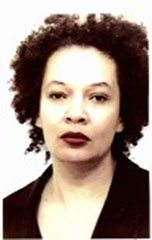|
Intermix.org.uk is a website for the benefit
of mixed-race families, individuals and anyone who feels they have a multiracial
identity and want to join us. Our mission is to offer a view of the mixed-race experience, highlighting icons, film, books, poetry, parenting techniques, celebrities, real lives and much more. Our online forums are a great place to meet others, ask questions, voice your opinions and keep in touch. Sign up for our monthly newsletter and delve into our pages. Want to join in? Become an Intermix member to take part: |
Racial Identity - To Have Or To Be
Isabel Adonis

The philosopher and psychoanalyst, Erich Fromm, distinguishes two kinds of identity, characterized in terms of having and being. The 'having' identity is grounded in the external and material, while the 'being' identity is grounded within the person themselves.
If my sense of identity is based on the material, then I am what I have, and what I have in terms of identity, I can lose. This creates anxiety, and has to be guarded against. However, a sense of self which is based on expressing an inner reality of human experience - I feel, I see, I teach, I am sad, I am ashamed is not dependent on the external and there is a freedom from the danger of loss of self. An identity based on the expression of one's feelings through action has no material self to be lost.
This concept of identity as having and being Fromm derives from the work of Marx, who was concerned with the themes of labour and capital, where capital is dead, and labour alive. He quotes Marx: 'The less you are, the less you express your life, the more you have and the greater is your alienated life. Everything the economist takes away from you in the way of life and humanity he restores to you in the form of money and wealth'. Marx's central question is what is more important, things or life?
So what of a racial identity? What does it mean to have a racial identity and how might it fit with Fromm's theory? My skin is brown and my hair is frizzy and people see me generally as black; but if I say I'm black, they say 'well, I don't see you as black' and if I say I'm white, they think it a joke. It doesn't seem to matter what I say, I always end up, not as the one, but the other one. We are both always stuck in a paradox where the other of myself is always left out. If I say I'm different, they say we are the same: if I say we are the same, they say I'm different.
Being mixed race is a challenge, not just to racists, but to any fixed or unitary identity, like English, or Welsh or Scottish. My versions of laying claim to blackness and whiteness would count as a having an identity, because it is based on the outside, as linking up with someone else, an external group, rather than an expression of who I am from moment to moment.
When Fromm links identity with the material he doesn't only mean what car I drive: he is talking about the need to be part of a bigger group, a flag, a nation, an ideology, anything that appears bigger and therefore more important than the individual feels herself to be. Society teaches one from the beginning to conform and to compete for a place: in truth one has that place already. But the emotional and spiritual poverty of one's individual life with its changing and uncertain reality and meaning put one under constant pressure to make and defend an identity of having, an identity of capital.
It is hard not to do this because society has made this external authority - I am a professor, I am a doctor - the most important; more important than, I teach, I help the sick, identities which describe actions. Instead we are encouraged to be things, images that fix us and close us from the possibility of change, and which inhibit communication with each other as we protect our singularity. And the pressure is strong to identify mixedness as another thing that I have.
Society is divided because people want to hold on to something, to an identity, to a culture, to a religion, and claim the power and particular advantages of that position. People want to be separate and there is a tension between we-ness and I-ness, being together and being separate. But with the dependency of an external identity, one is never a separate individual, but always part of the group, and yet never truly together because the group is identified by its separation from the other. Human beings are always changing, society is always changing and we need to express ourselves in changing and not fixed ways. Equality, participation and interaction are human qualities and not material qualities, they relate to actions of a human kind - something a person does and not something a person has. In Fromm's sense these qualities are part of an internal sense of self, an identity of being and an honest expression of self.
To enter society as yourself is an act of liberation, a transformative act.
This paper was first submitted as part of the e-conference mixedness and mixing 4-6 September 2007.
